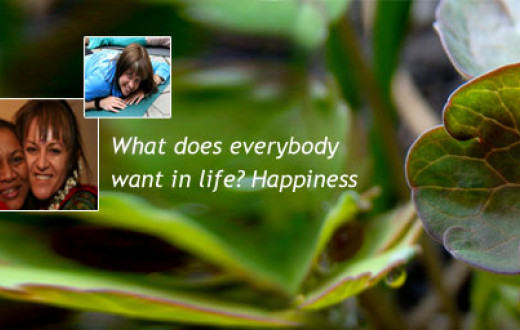A good friend, Kate, mentioned to me when I was down at the Gold Coast at the start of the New Year that sometimes she has "thinkitations" instead of meditations and, being a seasoned meditator, is fine with that.
If all your meditations are thinkitations, that is, if you are constantly bombarded with connected thoughts and/or drift along with thoughts in a dull state, then you need to prepare a bit more by doing more pranayama and/or exercise, yoga, and so on. This will reduce rajas, which, in excess, plays out as an energy of agitation and restlessness, and tamas, which will make your meditations dull and lacking in clarity. When the prana is down, or if your system is a little out of whack, or things are unusually busy, you may also naturally drift along with thoughts more than you usually would. Food, both quality and quantity, and the state of your digestive system can also play a role in this. "A good meditator is always hungry," a great sage once said.
Also, developing the daily habit of allowing the mind to rest in the present moment will help. Simply an intention to let go of unnecessary thoughts is very powerful. If your mind is rampaging unchecked outside of meditation, then it will tend to do the same in meditation. Letting your mind roam freely is a habit, and becoming more aware and letting go of thoughts that don't serve you is also a habit, which you can learn and implement. The beautiful pointers given in The Happiness Program are so valuable here. A big milestone as a meditator, and in spiritual life as a whole, is discovering and really appreciating that the juice in life is now, never in the past or future, which are only memories and imaginings. When you really get that, even in the midst of challenging times, all the struggle around your mind will cease.
Before meditation, lightly entertain the three intentions—I want nothing, I do nothing, I am nothing—and then let everything go and relax. Have the attitude that your mind can do what it likes and it is fine by you. The biggest mistake we can make during meditation is to try to do something about the mind. The attitude to take is to not fight or resist the mind and also to not feed it. Imagine thoughts as post-it notes with messages written on them, blowing by you in the wind. Not fighting means not trying to stop them, even if some of them brush your face as they go by, and not feeding means not grabbing and reading them. Thinkitation means that you're probably doing both, but that's just happening and it's fine. Your wanting to stop that is just another post-it note, or, more accurately, a cluster of post-it notes.
If you try to do anything about your thoughts in meditation, you just create more agitation. Recognize that there is nothing you can do about it once you're there. Just simply notice. The noticing is all that needs to be done, or can be done, without stepping out of the stream of meditation. But don't write your meditation off.
You may slip a little deeper sometimes...or maybe not. All is OK. Remember, in any meditation, no matter what happens, there is something good and beneficial going on. If your meditations are only occasionally thinkitations, like Kate, then just welcome them. After all, your occasional thinkitations make you appreciate your meditations much more. If you're a regular thinkitator, then be OK with that during your meditation and don't stop your meditations, but do follow the preparation tips here and in the How to Prepare for Meditation article, that outlines them in more detail.
Written by Chris Dale, Advance Course Meditation Teacher


























